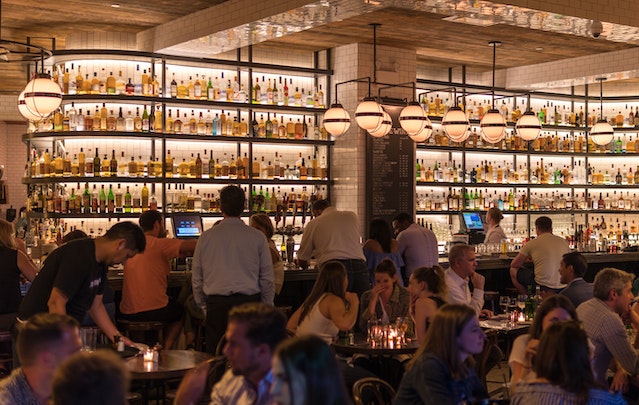The pandemic has accelerated some fundamental changes in the restaurant industry and forced a rethinking of some long-held assumptions about how menu trends emerge and evolve, according to a recent webinar from two industry trend watchers.
The boundaries between different segments of the restaurant industry have been blurring, a shift that began before the pandemic but has become more prominent, said Suzy Badaracco, president of Culinary Tides, and Maeve Webster, president of Menu Matters, who presented the webinar last week as part of Culinary Tides’ Boardwalk Talk series. The traditional restaurant segments—fine dining, casual, midscale, and quick-service—have become an increasingly irrelevant framework to view the industry, said Webster, as these segments have bled into each other.
“Even before the pandemic, there were increasingly grayer and grayer areas at the edges of those segments,” said Webster. “Since the pandemic, this is something that has just exploded. Though we continue to use these classic definitions, that is becoming an increasingly irrelevant way to look at the industry.”
The emergence of ghost kitchens and new pickup and delivery-only models, for example, are a major factor reshaping the boundaries of these traditional segments, they said.
That trend could also be impacting the traditional way that menu trends work their way through the industry, Badaracco and Webster said. While the industry has historically thought about menu trends as first emerging from the creative talents of fine-dining operators and working their way down through casual, midscale, and quick-service operators, that pattern has become an outdated way to think about trends, they said.
While fine dining remains a source of some trends, only a small fraction of them actually become widely available in more mainstream restaurant formats, they said. Many tend to be either too expensive for casual or quick-service dining or too complicated to execute, for example.
“We need to be looking more outside our own industry,” said Webster, citing industries such as health and beauty and fashion that are also inspiring and nurturing potential new culinary trends.
“If we don’t as an industry become more cognizant of how many trends are starting well outside [the restaurant industry]… we are going to be missing a lot of what’s happening,” she said.
The rapid growth of streaming movies and television shows from all over the world is one example of a potential source for new culinary ideas, Webster said. These shows expose people to a range of different cultures and potential glimpses at future culinary trends.
Badaracco cited the ongoing Southern food trend as an example of a trend that actually first appeared in cookbooks in the mid-2000s and went straight into quick-service restaurants such as McDonald’s, which launched its Southern Style Chicken Sandwich in 2008, and Popeyes, which rebranded as Popeyes Louisiana Kitchen that same year. The trend then ricocheted around in other industries and evolved further, only later appearing in fine dining in the form of Southern fried chicken.
The Southern food trend continues to evolve as cuisine trends from specific regions, such as Appalachian and Low Country, take turns grabbing the spotlight, Badaracco said.
Both Webster and Badaracco also cautioned about giving too much credit to social media influencers.
“Trends rarely start with social media or influencers,” said Badaracco. “Ninety-nine percent of the time, they don’t even know what they are talking about. They have a big mouth and a big following, and that’s why they are worth watching, but they are really reacting to a trend that’s already been born.”
Webster also cautioned that influencers can be unreliable as marketing partners.
“Influencers are on pretty shaky ground in general,” she said. “If you latch onto them, they can easily lead down a path of scandal, and a host of other issues, because nobody really knows what their background is, and what’s lurking in their closets.”
Related: Celebrated Copenhagen Restaurant to Close; James Beard Foundation to Host Chef Action Summit

